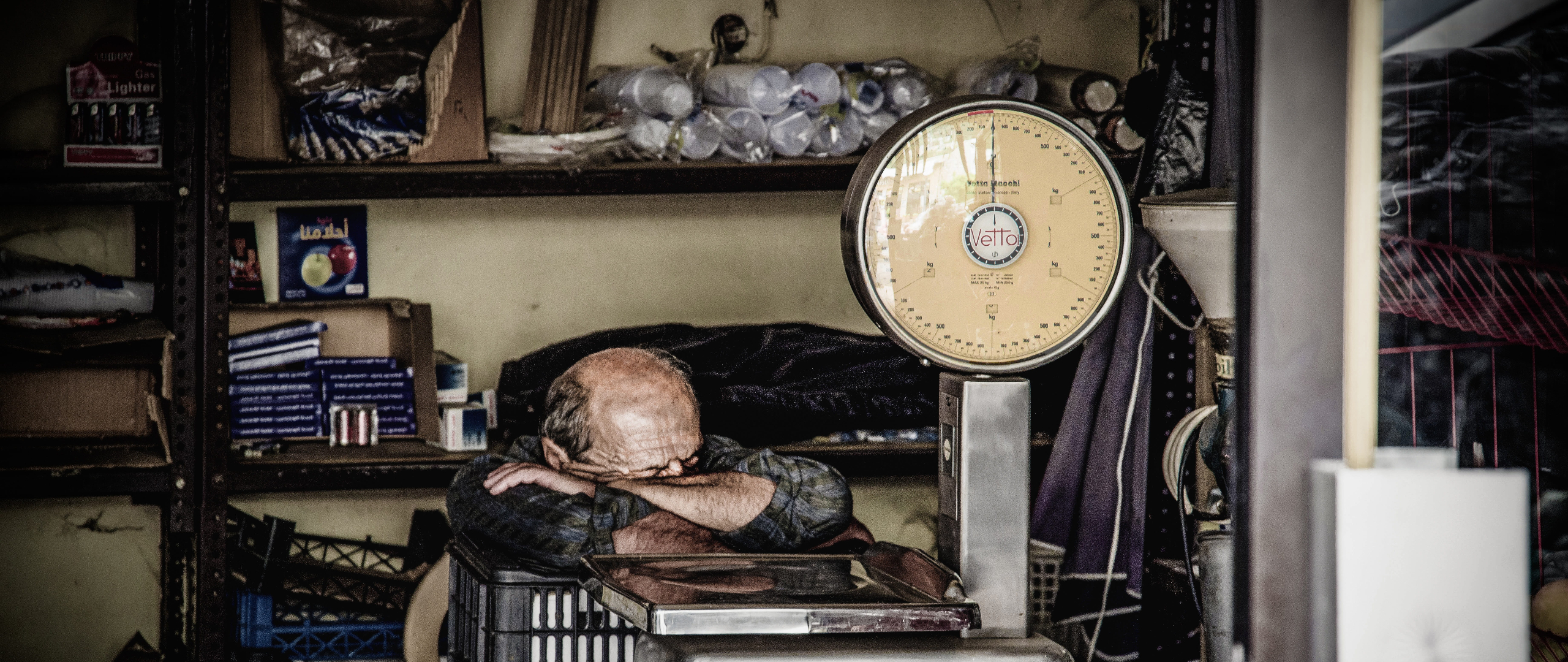A new brief from the Knowledge to Policy (K2P) center at the American University of Beirut (AUB) shows that the new cash cards to be introduced by the government as it lifts subsidies are insufficient for needy families and unsustainable in the long-term.
The cards will have a value between $93 and $126, set according to family size and redeemable in cash dollars that can be exchanged at the parallel market rate.
The K2P study shows that these cards must at least carry a value of $150 per month at the LBP 17,000 rate to cover the average costs of meals, as per the Ministry of Economy and Trade’s latest update of prices of “foodstuff basket.” Three meals a day would cost an adult an average of LBP 85,000, or LBP 2,550,000.
At the present time, the Lebanese lira stands at over LBP 21,000 following ex-Prime Minister-designate Saad Hariri’s resignation last Thursday, with further collapse anticipated should parliament and the president fail to appoint a prime minister capable of forming a rescue cabinet during the country’s time of need.
While cash transfers can help reduce poverty and improve food security, the K2P brief stressed the consequences of the planning, design, and implementation of the cash transfer program.
For example, the wrong targeting of beneficiaries can exacerbate social, economic, and political tension as a result of the scarcity of resources. Meanwhile, the lack of monitoring and oversight for the program can lead to widespread corruption and abuse.
In early May of this year, caretaker Prime Minister Hassan Diab introduced the $556 million cash card programme to offer 500,000 struggling families support in purchasing essential items at a time when the government is seeking to lift subsidies draining the central bank’s foreign currency reserves.
Some of these subsidies include fuel, medicines, wheat and other basic food items. The government has already lifted subsidies off of many of these items, and citizens are now feeling the crunch as hyperinflation continues to overtake every area of their lives.
At the time of the introduction of the cash card programme, the lira’s black market rate stood at LBP 13,000 for every one dollar. As of now, the lira’s rate has increased by over LBP 10,000 in less than two months –an alarming increase that indicates massive instability not only for the currency itself but also for the country.
The prices of fuel and gasoline have increased almost weekly, while the price of bread has fluctuated over three times in one month. Over the past weekend, caretaker Health Minister Hamad Hassan announced that medicines will no longer be subsidized, forcing the price of medications to skyrocket.
On August 26, 2020, President of the Lebanese Order of Pharmacists Ghassan Al-Amine warned that a disaster awaited Lebanon once the central bank lifts subsidies on medications.
“This will lead to a sharp increase in the prices of medicines in Lebanon and the bankruptcy of the National Security Fund which covers more than 80 percent of the medicine bills of over 60 percent of the Lebanese population,” he said.
Considering all of the above conditions, it seems unlikely that Lebanon’s most vulnerable will be able to afford their basic necessities using only the cash card.


